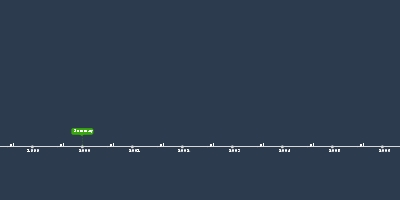jan 1, 1986 - Iran-Contra scandal weakens Reagan presidency
Description:
iran-contra affair:Reagan administration scandal that involved the sale of arms to Iran in exchange for its efforts to secure the release of hostages held in Lebanon and the redirection — illegal because banned by American law — of the proceeds of those sales to the Nicaraguan Contras.Determined oppositions to left-wing movements in Central America engulfed the Reagan administration in a major scandal that bridged two distinct parts of the globe. For years, Reagan had denounced Iran as an “outlaw state” and a supporter of terrorism. But in 1985, he wanted its assistance in freeing two dozen American hostages held by Hezbollah, a pro-Iranian Shiite group in Lebanon. As an enticement, the administration conducted a secret arms deal, selling weapons to Iran without public or congressional knowledge. The proceeds of this sale wound up in Nicaragua — and set off a major controversy. The CIA was already operating in the small Central American country to overthrow the democratically elected Sandinistas, a left-wing government whom the president accused of threatening U.S. business interests. Reagan ordered the intelligence agency to assist an armed opposition group called the Contras (Map 29.2). Although Reagan praised the right-wing Contras as “freedom fighters,” reliable human rights groups accused them of attacking civilians and other abuses. In addition, Congress worried that the president and other executive branch agencies were assuming war-making powers that the Constitution reserved to the legislature. In 1984, Congress banned the CIA and all other government agencies from providing any military support to the Contras.
Ever since the Monroe Doctrine (1823), the United States has claimed a special interest in Latin America. During the Cold War, American foreign policy throughout Latin America focused on containing instability and the appeal of communism in a region plagued by poverty and military dictatorships. Providing foreign aid was one approach to addressing social and economic needs, but the United States frequently intervened with military forces (or by supporting military coups) to remove unfriendly or socialist governments. The Reagan administration’s support of the Contra rebels in Nicaragua, some of which was contrary to American law, was one of those interventions.
U.S. Marine Corps Lieutenant Colonial Oliver North, an aide to the National Security Council, defied that ban. With the tacit or explicit consent (whether tacit or explicit was never conclusively proved) of high-ranking administration officials, including the president, North used the profits from the Iranian arms deal to assist the Contras. When asked whether he knew of North’s illegal actions, Reagan replied, “I don’t remember.” In an echo of the Watergate scandal, congressional hearings on what was dubbed the Iran-Contra affair were aired on live television for weeks in the summer of 1987, and journalists enthusiastically made comparisons to President Nixon’s downfall. Called to testify, North admitted that he lied to cover up his illegal actions, but he declined to implicate Reagan in the scheme. North and several other officials were eventually prosecuted, and the scandal weakening Reagan at home — he proposed no bold domestic policy initiatives in his last two years. But the outcome of Watergate — a presidential resignation — was not repeated. Reagan avoided direct responsibility for North’s actions and remained steadfastly engaged in international affairs, where the dramatic close to the Cold War was unfolding.
The 1987 Iran-Contra congressional hearings, which lasted more than a month and were broadcast on live television, helped to uncover a secret and illegal White House scheme to provide arms to the Nicaraguan Contras. Though Lieutenant Colonial Oliver North (shown here during his testimony before Congress) concocted much of the scheme and was convicted of three felonies, he never served prison time and emerged from the hearings as a populist hero among American conservatives, who saw him as a patriot.
Added to timeline:
Date:
jan 1, 1986
Now
~ 39 years ago
